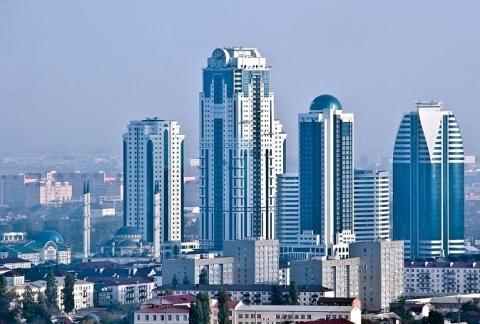Why Chechnya still feels like a battleground

A Russia without Putin and his puppets would be a better one for Chechnya. By Lorraine Courtney.
Polina Zherebtsova was just 14 when the bombs began falling on her city. She wrote everything down, filling dozens of diaries with raw stories of a city under siege and a teenage girl’s broken dreams. Her journals have just been published. They engage and shock. They also reilluminate a conflict that has largely fallen off the media map.
“5 October 1999. So far we’re alive!” Zherebtsova writes. “There hasn’t been gas for a long time. They’re bombing. Our four-storey house has started to sink from all the shaking. The walls have separated from the ceiling in one room. Today the planes flew in circles over the market. Many people ran away. Including a healthy light-haired guy, Vandam, who studies in the law faculty. He regularly lets me and Mum trade in his wooden stall. It’s convenient in the rain. But I don’t love him.”
Zherebtsova fled Chechnya in 2005 and vows she will never return. But since Russia’s devastating assaults, Chechnya has rebuilt its infrastructure, and in place of the shattered carcass the war left behind, a sort of fantasy Grozny is now almost complete. SUVs drive along well-paved roads, beauty salons have sprung up to meet the Botox fad and there are sushi restaurants galore lining Putin Avenue. Yes really, the main thoroughfare is named for Vlad. There’s a spanking new mosque - an imitation of Istanbul’s Hagia Sophia, that glitters with Swarovski crystals - and five soaring skyscrapers. They make up Grozny City, the business centre that might soon make the city a kind of Dubai in the Caucasus.
Ramzan Kadyrov, the oddball leader and the Kremlin’s puppet prince, is famous for his collections of wild animals and luxury cars. A football match between an all-star Brazilian side and an eccentric Chechen team captained by Kadyrov himself took place early last year and Hilary Swank turned up to play Marilyn Monroe to his JFK at his last birthday party. This emergence of a bright new Grozny is an extraordinary development in a place with hardly any economy of its own. Unemployment stands at 85% and the region subsists on enormous subsidies from Moscow.
And for all the superficial trappings of peace and prosperity, Chechnya can still feel like a battleground. Enforced disappearances, beatings, deaths in custody, extrajudicial executions and arbitrary detentions still happen with shocking regularity. All the while, government officials never tire of playing up the rebels’ supposed links to terrorist organisations beyond Russia’s borders, and they eagerly exhibit al-Qaeda leaders’ occasional statements of support for the Chechen separatists. But the reality is that the rebels’ best recruiter isn’t overseas jihadists but the Kremlin itself.
Last November, a young builder spoke out against Kadyrov’s regime. Islam Umarpashayev was abducted in Grozny over three years ago, blindfolded and dragged to a police station. He was savagely beaten when he refused to sign a false confession that he had taken part in an attack on Chechen police. An electric cable was forced into his mouth. He was threatened with rape. His captors refused to let him shave so that he would resemble an Islamic militant and he was told he would be killed in a staged anti-terrorist raid. After international pressure for his release, Umarpashayev was saved. He now finds that his life is in danger again, after he did something that was previously unthinkable. He denounced his captors and President Kadyrov.
The recent demonstrations in Moscow and other Russian towns are hardly a Tahrir Square scenario, but there is some sense that now something really is changing. It’s not yet a Slavic spring but there is a shift in the Russian mood. The rising violence in the north Caucasus, the post-imperial spasms of Russia’s foreign policy and the embarrassing farce of the Putin-Medvedev double act can no longer be ignored. Russians see that there is an alternative. That alternative is a Russia without Putin and his puppets. That alternative would be better for Chechnya.
Image top: Wild.nohcho.
